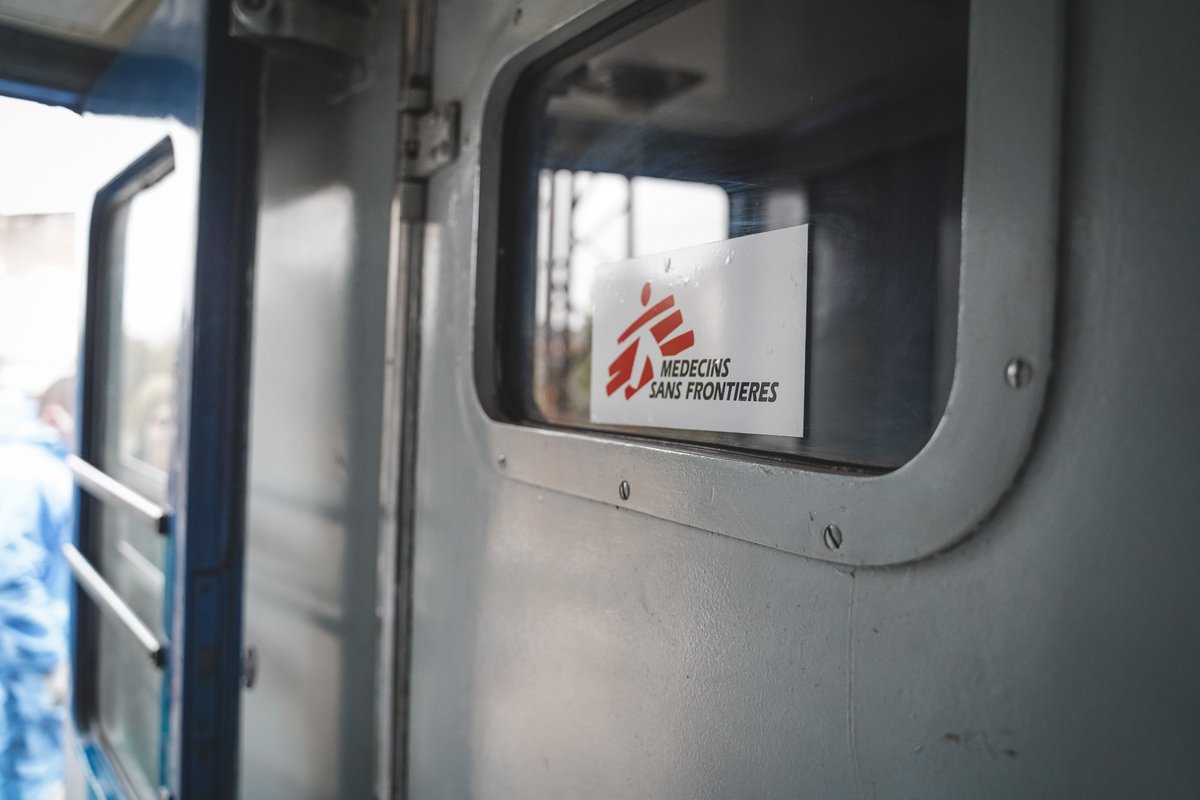
The MSF #MedicalTrain. Never done before by @Ukrzaliznytsia or @MSF. So, what it is? All explained in this thread... 🧵 

8 regular Ukrainian railway carriages, converted into:
1 Intensive Care Unit
2 hospitalisation carriages
2 less-critical patient carriages
1 oxygen-production carriage
1 electricity-generator carriage
1 staff sleeping carriage
Total nearly 200m long (without the locomotive)
1 Intensive Care Unit
2 hospitalisation carriages
2 less-critical patient carriages
1 oxygen-production carriage
1 electricity-generator carriage
1 staff sleeping carriage
Total nearly 200m long (without the locomotive)

ICU (Intensive Care Unit) carriage with 5 beds
Equipment includes:
- Monitors
- Defibrillators
- Ventilators
- Syringe pumps
2 of the beds at full ICU level-3 care = patient on a ventilator up to 60 litres/minute oxygen flow
Equipment includes:
- Monitors
- Defibrillators
- Ventilators
- Syringe pumps
2 of the beds at full ICU level-3 care = patient on a ventilator up to 60 litres/minute oxygen flow

Oxygen production carriage
7 oxygen concentrators
Oxygen piped direct to the Intensive Care Unit beds
7 oxygen concentrators
Oxygen piped direct to the Intensive Care Unit beds

2 in-patient (hospitalisation) carriages
Each with 8 to 9 beds
Doors widened to bring patients on stretchers
Blast film on windows to prevent shards in case of nearby explosion (this is on all the carriages)
New linoleum floors to prevent and control infection
Each with 8 to 9 beds
Doors widened to bring patients on stretchers
Blast film on windows to prevent shards in case of nearby explosion (this is on all the carriages)
New linoleum floors to prevent and control infection

Electricity generator carriage
Generator and fuel tank
Battery bank as a back-up (USP – Uninterrupted Power Supply)
Reinforced carriage floor because of the weight
1,800+ metres of electric cables installed in the train
Generator and fuel tank
Battery bank as a back-up (USP – Uninterrupted Power Supply)
Reinforced carriage floor because of the weight
1,800+ metres of electric cables installed in the train

The #MedicalTrain refers patients from 🏥 close to frontlines in the east to 🏥 in the west of Ukraine. Always with family members.
Now 2 trains: New more technical train can take up to 26 serious-condition patients. Original less-medicalised train can take up to 50 patients.



Now 2 trains: New more technical train can take up to 26 serious-condition patients. Original less-medicalised train can take up to 50 patients.




Also, make sure to watch this video of our Dr. Dan Schnorr from the first ride of the train in April:
https://twitter.com/MSF_Ukraine/status/1510631337169936386
• • •
Missing some Tweet in this thread? You can try to
force a refresh







